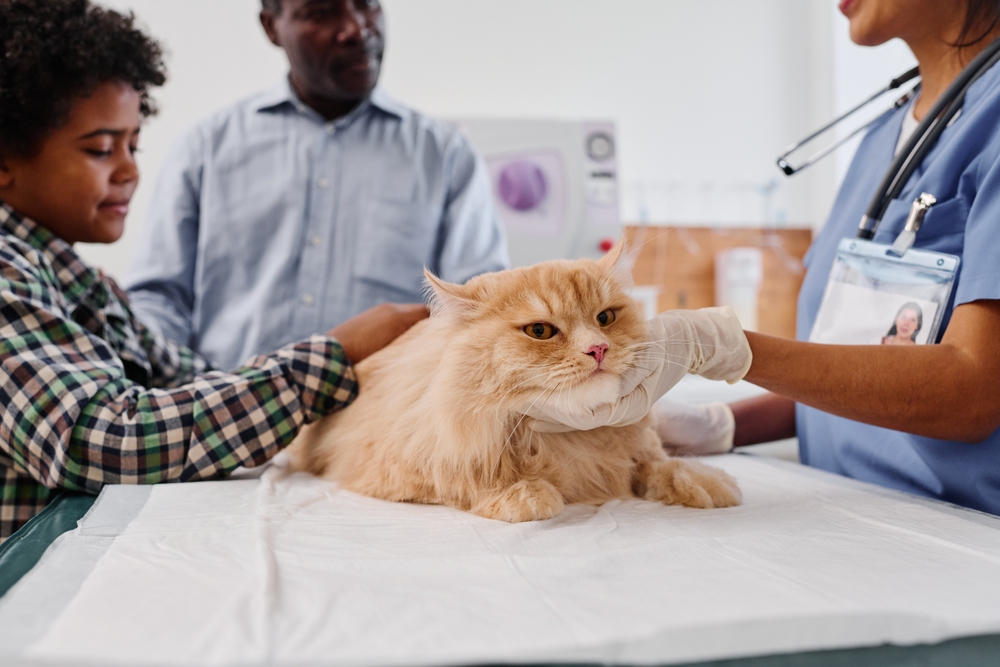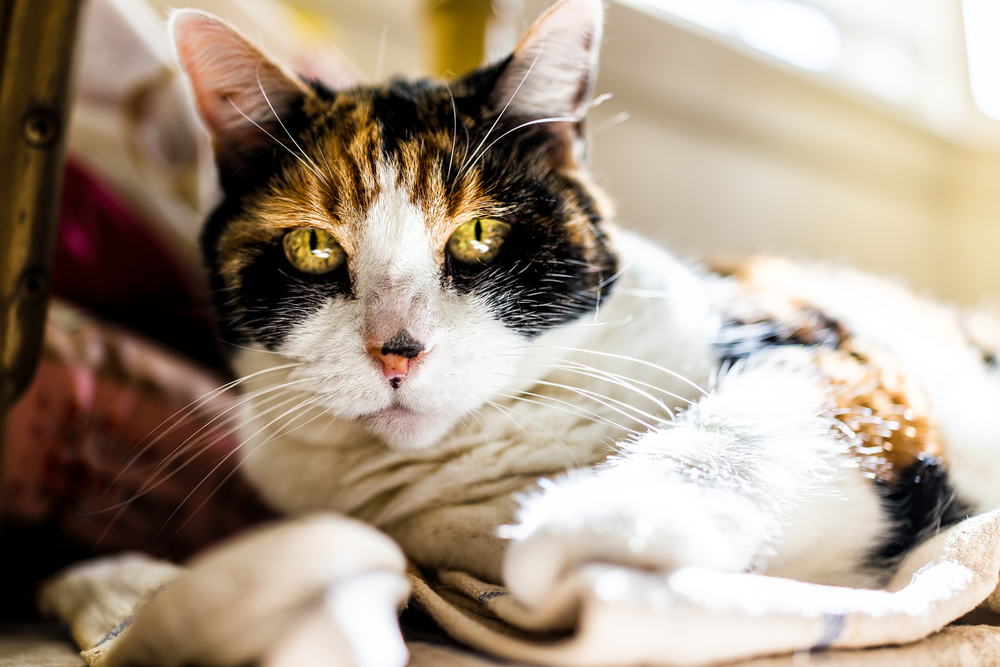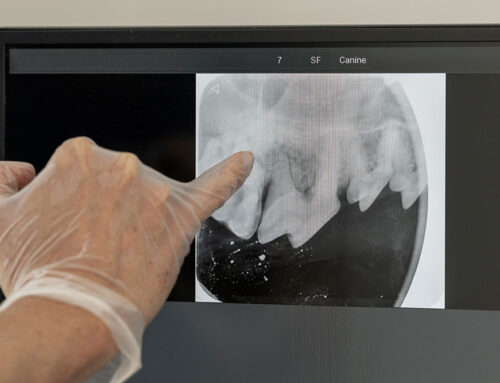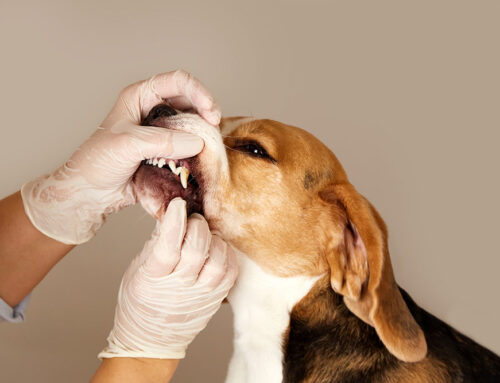What to Expect as Your Cat Ages: A Guide to Health Concerns
As your cat enters their senior years, changes in behavior, mobility, appetite, or grooming habits might leave you wondering what’s normal- and what’s not. At Town & Country Animal Hospital in Athens, Alabama, we’re here to help you understand the health concerns that often emerge with age, and to guide you through the decisions and care that keep older cats comfortable, supported, and thriving.
Subtle Shifts, Serious Signals
Cats are notoriously stoic. Many age-related illnesses develop slowly and silently, and it’s often the smallest behavioral shifts- like skipping a favorite perch, hesitating at the stairs, or sleeping in a new location- that provide the first clue that something’s off. While aging is a natural process, it often brings health conditions that benefit from early recognition and proactive treatment.
Let’s explore some of the most common medical conditions in senior cats- and how you can help your cat navigate them.
Mobility Issues and Arthritis
It’s easy to mistake stiffness or slowness for “just old age,” but arthritis and degenerative joint disease (DJD) are among the most underdiagnosed conditions in older cats. According to International Cat Care, most cats over the age of 12 show radiographic signs of arthritis- even if they’re not limping.
You might notice your cat grooming less, avoiding high surfaces, or becoming irritable when touched. Even changes in litter box habits can be a clue; if stepping in and out becomes painful, some cats begin to go outside the box. Weight management, home modifications (like ramps and padded bedding), and pain relief therapies can all make a substantial difference.
For more practical ideas on supporting your cat’s mobility at home, AAHA’s Mobility Matters Guide is a helpful resource.
Kidney Disease: A Quiet but Common Threat
Chronic Kidney Disease (CKD) affects a significant portion of senior cats and tends to progress gradually. Early signs include increased thirst and urination, along with weight loss, vomiting, and bad breath. These changes are easy to miss or brush off- but the sooner CKD is diagnosed, the more options we have to slow its progression.
The Cornell Feline Health Center offers a deep dive into how CKD develops, how it’s diagnosed, and what treatments are available. Managing CKD may involve prescription diets, subcutaneous fluids, medications for phosphorus control or nausea, and regular lab monitoring.
Hyperthyroidism: Speeding Up from the Inside Out
If your cat seems ravenous yet is losing weight, becomes restless, or has a racing heartbeat, hyperthyroidism may be the culprit. This endocrine disorder is often caused by a benign tumor on the thyroid gland and is one of the most common diseases in older cats.
Left untreated, it can lead to high blood pressure, heart disease, and further strain on the kidneys. AAHA’s Feline Hyperthyroidism Guidelines explain the options for diagnosis and treatment, including oral medications, dietary therapy, radioactive iodine, and surgery.
Diabetes Mellitus
Senior cats who are overweight or inactive may develop insulin resistance, resulting in diabetes. Signs often include increased thirst, excessive urination, and weight loss. Weakness in the hind legs or changes in walking posture are also common.
AAHA’s diabetes guide walks through treatment strategies, from insulin injections to dietary changes. Early diagnosis and consistent daily management are key to keeping your cat stable and avoiding complications like ketoacidosis or nerve damage.
Cancer in Senior Cats
Cancer is a major cause of illness in aging cats, and it comes in many forms- from skin tumors to internal cancers like lymphoma. You may notice unexplained weight loss, swelling, difficulty eating, or persistent vomiting or diarrhea. Regular checkups are essential, as early intervention can significantly impact quality of life.
Explore this overview of common pet cancers for more insight, and for feline-specific information on one of the most common forms, visit Cornell’s guide to lymphoma in cats.
Cognitive Decline and Behavioral Shifts
Just like people, aging cats can experience cognitive decline. You may see changes in sleeping habits, disorientation, altered vocalizations, or difficulty with litter box use. Some cats become anxious or forget familiar routines.
Colorado State University highlights key signs of feline cognitive dysfunction. The ASPCA also offers suggestions for managing age-related behavior changes, including adjustments to environment, routine, and enrichment.
Grooming challenges also emerge with age, particularly for arthritic or cognitively affected cats. The National Cat Groomers Institute recommends regular, gentle grooming support to prevent mats, maintain skin health, and help older cats feel more comfortable in their bodies.
The Importance of Preventive Testing
One of the best tools we have to detect age-related issues early is routine screening. That includes bloodwork, urinalysis, thyroid testing, and blood pressure monitoring. These diagnostics can uncover hidden problems before symptoms appear.
Zoetis Petcare outlines why preventive testing is especially valuable for senior pets. AAHA’s broader senior care recommendations also reinforce the importance of individualized wellness plans and twice-yearly exams.
Dental Disease: The Hidden Pain
Dental problems often go unnoticed until they’re severe. Gum disease, resorptive lesions, and tooth decay are painful and can make eating uncomfortable- yet many cats continue to eat through the discomfort, making dental disease easy to miss.
According to AAHA’s dental care guide, untreated oral disease can lead to infections that impact the heart, kidneys, and liver. Dental exams and cleanings are an essential part of senior cat care.

Partnering with Your Vet
Senior cats benefit from twice-yearly wellness exams, personalized care plans, and open communication between pet owner and veterinary team. Bring a list of concerns to your appointments, and don’t hesitate to ask:
- Have there been any early signs of disease in my cat’s labwork?
- Should we adjust their diet or supplements?
- How can I improve my cat’s mobility and comfort at home?
- What can I expect as these conditions progress?
Even seemingly small changes- like increased grooming, different sleeping spots, or reduced play- can be medically meaningful.
We’re Here to Support You and Your Cat
Aging doesn’t mean the end of adventures. With thoughtful care and regular checkups, senior cats can enjoy many years of love, comfort, and companionship. At Town & Country Animal Hospital, we’re here to help you every step of the way- from preventive care and diagnostics to personalized treatment plans and daily advice. Ready to give your older cat the best possible support? Schedule an appointment and let’s create a care plan that works for you both.







Leave A Comment